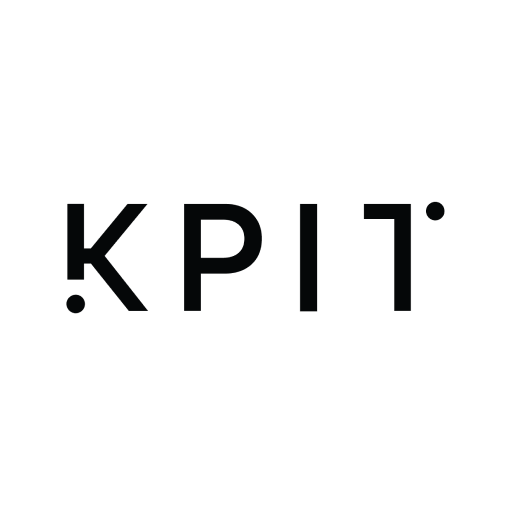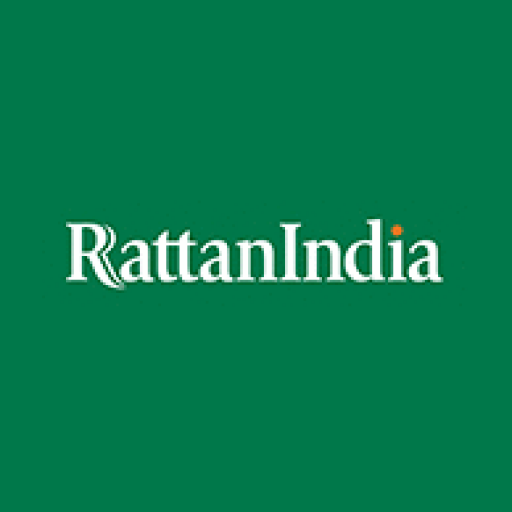BSE Share Price
NSE: BSEFinanceBSE Share Price Chart
BSE Stock Performance
Market cap | Open ₹3,169.00 | Prev. Close ₹3,177.10 |
Circuit range ₹3,494.80 - ₹2,859.40 | Day range ₹3,141.80 - ₹3,179.00 | Year range ₹1,227.33 - ₹3,227.00 |
Volume 22,76,507 | Avg. traded ₹3,157.97 | Revenue (12m) ₹2,913 Crs |
About BSE
BSE Limited – Company Overview
BSE Limited (earlier Bombay Stock Exchange) was established in 1875 and is Asia’s oldest stock exchange. With its services of trading platform, clearing and settlement, depository and index, it has and continues to be one of the most important pillars of India’s financial markets. This stock exchange was publicly listed in 2017.
BSE is best known for its benchmark index SENSEX, which tracks the performance of 30 large, well-established Indian companies.
BSE is a financial universe in itself that offers diversified services like trading, clearing and settlement, market data, index services, depository services and provides a platform for mutual funds and startups. With its strong regulatory framework, advanced technology infrastructure and top-notch credibility, BSE Limited continues to be a pivotal institution for retail and institutional investors in India and abroad. Given India’s expanding capital markets, a rising number of investors, BSE Limited stock is closely tracked by investors looking for exposure to the capital market and financial services.
BSE Limited – Company Details
Founded – 1875 Headquarters – Mumbai, Maharashtra, India NSE Symbol – BSE ISIN – INE118H01025 BSE Code – 538683 Sector – Financial Services Industry – Capital Market Infrastructure / Stock Exchange
Core Business Segments
-
Equities, Derivatives and Currency Trading - BSE provides a robust and deeply regulated platform for trading in equities, equity derivatives, currency derivatives and debt instruments. Its ecosystem supports all types of market participants, be it retail investors, institutional investors, brokers and proprietary traders.
-
Clearing and Settlement - Through its clearing corporation, BSE undertakes clearing and settlement of trades, all by adhering to strong risk management systems.
-
Market Data and Index Services - BSE offers real-time and historical market data to institutions, brokers and data vendors. Its index business includes flagship indices like SENSEX, BSE 100, BSE 500 and other sectoral indices.
-
Mutual Fund Platform – BSE StAR MF is India’s leading mutual fund transaction platform by volume. It provides services like mutual fund purchases, redemptions and SIPs (Systematic Investment Plan) for distributors and investors. This platform significantly contributes to BSE’s non-trading revenue.
-
SME and Startup Platform - BSE operates SME and Startup listing platforms in India, helping small and medium enterprises raise capital efficiently under a well-regulated ecosystem. This segment, thus, supports entrepreneurship and widens the reach of financial markets.
-
Depository Services - BSE promotes depository services through CDSL (Central Depository Services Limited. These depository services, by eliminating paperwork and storing securities digitally, have revolutionised Indian stock market investing.
BSE Limited Latest News & Corporate Actions
Corporate Developments
-
Growth in Derivatives Segment – BSE has been focusing on expanding its equity derivatives offerings, including futures and options, to increase trading volumes and market participation.
-
Technology and Infrastructure Upgrades – The exchange continues to invest in high-speed trading systems, cybersecurity and data analytics to ensure reliability, scalability and regulatory compliance.
Major Launches and Strategic Initiatives
-
Index-Based Products Expansion – BSE is actively promoting SENSEX-linked derivatives and electronic traded funds (ETFs).
-
SME Platform Growth – The SME exchange has been seeing strong listings, making BSE a preferred platform for smaller companies looking to go public.
-
Digital and Retail Market Focus – With rising retail investor participation, BSE is strengthening digital initiatives, investor education programs and simplified access to capital market products.
Market Reaction and Stock Highlights
BSE Limited shares have gained attention due to the company’s asset-light business model, operating leverage and increasing share of non-transaction-based revenues such as data services and mutual fund platforms.
The stock often reacts positively to
- Growth in derivatives trading volumes
- Rising mutual fund transactions on the StAR MF platform
- Increased SME listings and capital market activity
As India’s equity culture deepens and financial markets mature, analysts view BSE as a long-term play on capital market growth and financial infrastructure development.
Other Corporate Actions
Revenue Diversification – BSE continues to reduce dependence on pure trading revenues by expanding data services, index licensing, mutual fund platforms and technology solutions.
International Collaborations –The exchange is exploring global partnerships to promote cross-border listings, data sharing and technology services.
ESG and Governance Initiatives – BSE follows strong corporate governance practices and actively promotes ESG awareness through sustainability indices, green bonds and social impact listings. It also plays a role in encouraging listed companies to adopt transparent and responsible business practices.
Source – BSE announcements and company investor presentations
BSE Share Price Today
As of 12 Feb 2026, BSE share price is ₹3,142.40. The stock opened at ₹3,169.00, compared to its previous close of ₹3,177.10. During today's trading session, BSE share price moved in the range of ₹3,141.80 to ₹3,179.00, with an average price of ₹3,160.40 for the day. Looking at its last 52-week, the stock has touched a low of ₹3,141.80 and a high of ₹3,179.00. On the performance front, BSE share price has increased by 32.58% over the last six months and is up 83.75% on a year-on-year basis.
The market capitalization of BSE is ₹1,29,403 Crs, with a P/E ratio of 66.7 and a dividend yield of 0.42%.
BSE Fundamentals
P/E ratio 66.67 | ROA 29.56% | Dividend yield 0.42% | Operating profit margin 54.3% | Current ratio 1.14 |
P/B ratio 19.79 | ROCE 44.58% | Debt/Equity ratio 0 | Net profit margin 38.58% | Interest coverage 0 |
ROE 33.75% | EV/EBITDA 46.6 | EPS 81.01 | Quick ratio 2.57 | Asset turnover 0.69 |
BSE Revenue Statement
Year | Revenue | Operating Profit | Net Profit |
|---|---|---|---|
Mar-25 | ₹3,236.31 | ₹1,748.27 | ₹1,322.32 |
Mar-24 | ₹1,595.88 | ₹992.22 | ₹771.66 |
Mar-23 | ₹953.94 | ₹297.26 | ₹205.65 |
Mar-22 | ₹863.53 | ₹327.26 | ₹244.93 |
BSE Cash Flow
Year | Operating | Investing | Financing |
|---|---|---|---|
Mar-25 | ₹-758.37 | ₹-205.99 | |
Mar-24 | ₹-871.47 | ₹-149.05 | |
Mar-23 | ₹-137.11 | ₹-111.33 | ₹-185.51 |
Mar-22 | ₹-979.9 |
BSE Balance Sheet
Period | Total Asset | Total Liability |
|---|---|---|
Mar-25 | ₹10,341.65 | ₹5,765.95 |
Mar-24 | ₹9,450.23 | ₹5,995.57 |
Mar-23 | ₹5,993.81 | ₹3,164.82 |
Mar-22 | ₹6,185.40 | ₹3,395.69 |
BSE Share Price History
| Day | Open | Close | Change % |
|---|---|---|---|
29-Jan-26 | ₹2,828.80 | ₹2,861.60 | |
28-Jan-26 | ₹2,768.90 | ₹2,821.50 | |
27-Jan-26 | ₹2,699.40 | ₹2,761.20 | |
23-Jan-26 | ₹2,722.00 | ₹2,685.40 | -0.86% |
22-Jan-26 | ₹2,678.70 | ₹2,708.60 | |
21-Jan-26 | ₹2,638.70 | ₹2,628.80 | -0.93% |
20-Jan-26 | ₹2,732.00 | ₹2,653.40 | -2.69% |
19-Jan-26 | ₹2,800.00 | ₹2,726.70 | -2.92% |
BSE Corporate Actions
Bonus • 2:1
Ex date 23 May 2025
Dividend • ₹18/share
Ex date 14 May 2025
Dividend • ₹5/share
Ex date 14 May 2025
Dividend • ₹15/share
Ex date 14 Jun 2024
BSE Futures & Options
Stocks Similar to BSE
Stock Name | Price | Change % |
|---|---|---|
| BRILLIANT PORTFOLIOS LTD | ₹8.46 | +0.00 (0.00%) |
| Delphi World Money | ₹228.11 | -₹5.78 (-2.47%) |
| Max Financial | ₹1,814.40 | +₹80.30 (4.63%) |
| NIDHI GRANITES LTD | ₹333.00 | -₹1.00 (-0.3%) |
| Westlife Development | ₹543.35 | -₹1.00 (-0.18%) |
Trending Stocks
Stock Name | Price | Change % |
|---|---|---|
| CDSL Share Price | ₹1,370.00 | -₹27.20 (-1.95%) |
| HDFC Bank Share Price | ₹920.70 | -₹6.40 (-0.69%) |
| Indian Railway Tourism Corp Share Price | ₹621.85 | -₹6.50 (-1.03%) |
| IRFC Share Price | ₹113.55 | -₹0.78 (-0.68%) |
| ITC Share Price | ₹317.15 | -₹1.10 (-0.35%) |
| JIO FIN SERVICES LTD Share Price | ₹267.50 | -₹2.80 (-1.04%) |
| Reliance Share Price | ₹1,448.10 | -₹20.60 (-1.4%) |
| Tata Motors Share Price | ₹383.35 | -₹1.35 (-0.35%) |
| Tata Power Share Price | ₹380.30 | +₹4.65 (1.24%) |
| Tata Steel Share Price | ₹207.99 | +₹0.40 (0.19%) |
Top Gainers Today
| Company | Market Price | Change |
|---|---|---|
| ₹2335.60 | +389.2 (+20%) | |
| ₹1423.30 | +229.8 (+19.25%) | |
| ₹1286.60 | +116.9 (+9.99%) | |
| ₹154.28 | +10.58 (+7.36%) | |
| ₹192.15 | +10.63 (+5.86%) |
Top Losers Today
| Company | Market Price | Change |
|---|---|---|
| ₹1813.20 | -161.1 (-8.16%) | |
| ₹289.90 | -25.05 (-7.95%) | |
| ₹891.30 | -68.1 (-7.1%) | |
| ₹36.66 | -2.78 (-7.05%) | |
| ₹435.50 | -29.55 (-6.35%) |









